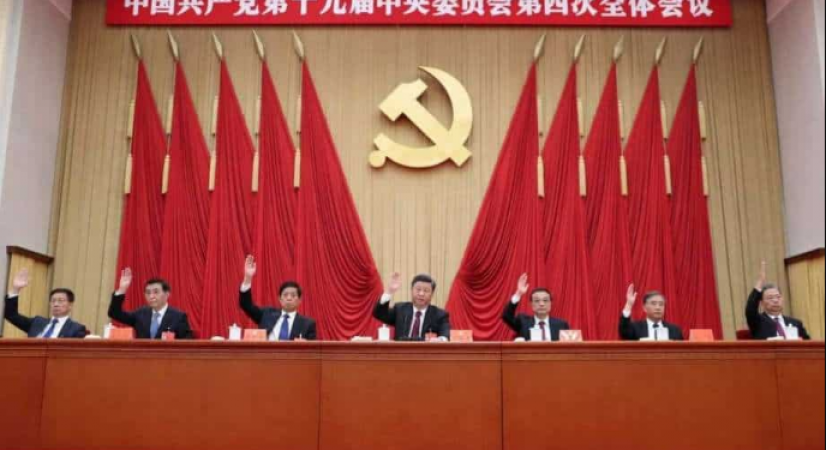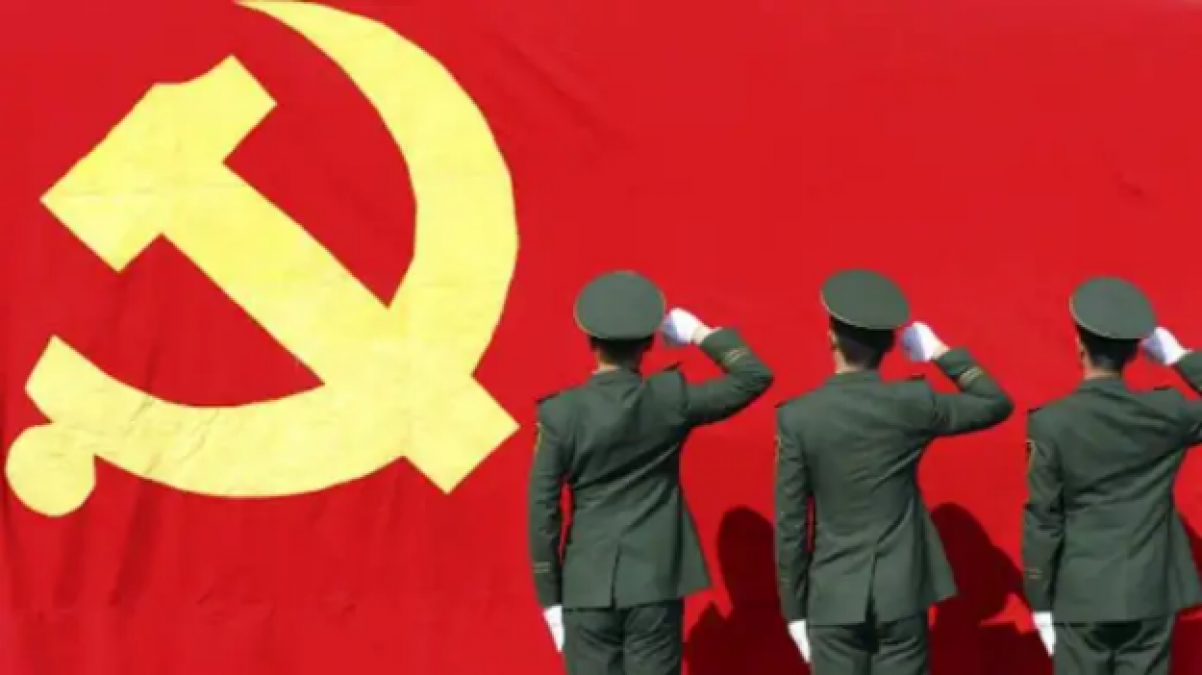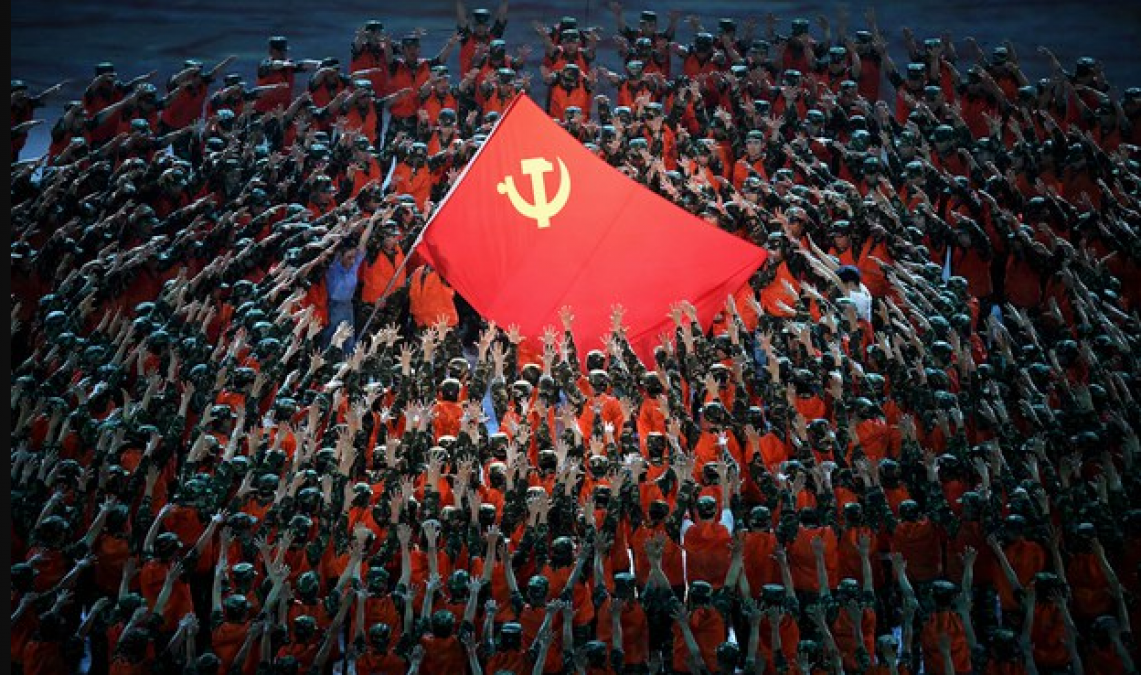
BEIJING: In mid-October, the Communist Party will hold its 20th National Congress, which will elect a new slate of party leaders. Mimi Lau examines those characteristics most likely to be promoted to important national positions, similar in the third article of a three-part series exploring personnel reshuffle guidelines.
The Communist Party experienced one of its worst crises in the past three decades in February 2020, when the deadly coronavirus, which was discovered in central China's Hubei province, spread rapidly across the country and a subpar initial response had previously unheard. public unrest.
To combat the outbreak, Beijing ousted party leaders in Hubei and Wuhan and replaced them with Ying Yong, the former mayor of Shanghai, and Wang Zhonglin, a former party chief in Jinan, a city in Shandong province. Deputy Prime Minister Sun Chunlan appointed Chen Yixin, general secretary of the Central Political and Legal Affairs Commission, as the deputy head of the national team for managing the virus fight in Hubei.
Beijing declared victory in controlling the outbreak within a few months, maintaining one of the lowest number of deaths worldwide. Ying, Wang and Chen received praise for their quick response to the COVID-19 pandemic and were predicted to move up to more important positions. The three "crisis solvers" indicate what is needed to move the party forward.
Ying, 65, a member of the party's central committee, was recently promoted as deputy party secretary of the Supreme People's Procuratorate. From March, Ying will take over as the country's chief prosecutor.
At the height of the COVID-19 outbreak, Wang, 60, was promoted from the head of the Wuhan party to the governor of Hubei in May.
Meanwhile, 63-year-old Chen is an expert in maintaining social stability after 30 years in Xi's former stronghold Zhejiang province and is considered the Chinese president's most important lieutenant.
The men sent to fight the virus in Hubei, in addition to their crisis management skills, have other qualities now seen as essential to the party's top positions: a track record of competence, the ability to win Xi's trust, a high level of background education, and solid regional leadership experience.
According to Dali Yang, a political scientist at the University of Chicago, "his experience in managing major municipalities and provinces and his extensive record in politics and law has shown Xi's very clear priorities in terms of personnel, especially in times of national crisis."
Xi is looking for a team that can fulfill his plans to achieve the goal of creating a modern socialist China by 2049 - the centenary year of the founding of the People's Republic of China - when he is expected to secure his third term. Have an estimate. Party leader at the 20th Party Congress.
Managing two important provinces and having ministerial experience especially in economically underdeveloped border areas such as Xinjiang or Tibet can be used as a testing ground for senior cadres to showcase their potential and any weaknesses they may have. Is.
Many candidates for top positions have ties to Xi and his trusted colleagues and backgrounds in business and technology.
According to Alfred Wu, an associate professor in the Lee Kuan Yew School of Public Policy at the National University of Singapore, many of Xi's former colleagues in the provinces of Zhejiang and Fujian are projected to be promoted to even higher positions in Congress.

One of the frontrunners is Shanghai's party chief Li Qiang, who is still in the running despite criticism from the general public over the city's handling of the two-month Covid-19 lockdown earlier this year. When Xi was the party chief of Zhejiang province, Li served as his secretary for three years. Before taking office, he also served as the provincial party chief of Jiangsu for two years.
The director of the National Development and Reform Commission, He Lifeng is seen as a prime candidate to join the Politburo, which currently has 25 members. When Xi served as the city's deputy mayor in charge of finances from 1985 to 1988, he served as its financial head. He was also the head and deputy party chief of the Political Consultative Conference of Tianjin.
According to Wu, it shouldn't be a surprise when He Lifeng replaces Liu He. Vice-President Liu, who has been Xi's economic king for the past five years, is now 70 years old, above the normal retirement age for politburo members.
Even though they didn't collaborate closely with Xi prior to his election as president, some other regional chiefs are also viewed as strong candidates for promotion. Li Xi, the head of the Guangdong party and a close friend of Xi's father Xi Zhongxun, previously held the positions of party chief of Liaoning and secretary to Gansu party chief Li Ziqi.
Both Shanghai mayor Gong Zheng and Fujian party secretary Yin Li are vying for promotions.
Cheng Li, director of the John L. Thornton China Centre at the Brookings Institution, stated in a commentary for the China-US Focus website in March that "the two Lis [Li Qiang and Li Xi] are leading candidates for the next Politburo Standing Committee, and others rank top for the next Politburo."
According to Tsai Wen-Hsuan, a researcher with the Academia Sinica's Institute of Political Science in Taiwan, in addition to installing confidants in important government positions, Xi has also put many people he trust in positions overseeing the management of party affairs.

Because of the former Soviet Union's deficient party affairs management, Tsai claimed that Xi is most aggressively securing his power within the party affairs system.
In June, Xi appointed Li Shulei, a close aide and former vice-president of the Central Party School, as the executive deputy chief of the propaganda division. He is viewed as Huang Kunming's likely successor, which would entitle him to join the Politburo.
Tsai continued by saying that Xi had a firm grip on the police. In June, Wang Xiaohong, a former subordinate of Xi in Fuzhou, the provincial capital of Fujian, was appointed public security minister. He was the first career police officer to hold the position in many years. In March, Wang will also become a member of the state council.
According to a study released in May by the Paulson Institute's MacroPolo [corr] think tank, the Central Committee under Xi has become the most educated in the history of the party, with 28% of its full members holding doctorates and 12% having studied abroad.
Analysts pointed out that education alone was insufficient, as cadres with experience in the military, finance, and science and technology have been preferred for their capacity to lead Xi's ambitious plans for global technology.
According to the MacroPolo report, the promotion of technocrats has increased since Xi took office in 2017 for his second five-year term as the party's general secretary, with STEM-trained cadres receiving 17 out of 30 top provincial promotions, up from six out of 23 during his first term.
Executives from state enterprise companies in the aerospace and military sectors have been appointed to ministerial and regional chief positions more frequently as Xi pushes for technological innovation to compete with the United States and realise China's goal of becoming a modern socialist society.
Out of 62 top provincial officials, 33 have degrees in engineering or science, while 13 have training in social science, such as Marxist political theory, and nine others have degrees in economics or finance.
Analysts predict that Ma Xingrui, the regional party secretary for Xinjiang and the former general manager of China Aerospace Science and Industry Corporation, will become a member of the Politburo, which makes policy.
Yuan Jiajun, the party chief of Zhejiang, and Zhang Qingwei, the party chief of Hunan, were both aerospace engineers. Zhang Guoqing, the party chief of Liaoning, is the former CEO of the military contractor North Industries, one of China's largest defence conglomerates.
Yuan has held significant positions in China's lunar and Mars exploration programmes, while Ma and Zhang previously held the position of chief commander for the country's Shenzhou space programme.
Leading environmental protection experts Li Ganjie of Shandong and Chen Jining of Beijing are the party leaders, while Yin Li of Fujian and Shen Xiaoming of Hainan are both physicians.
According to Yang of the University of Chicago, Xi was won over by the technocrats' discipline and lack of interest in playing political games, as evidenced by their appointments.
They are more likely to be submissive and protected from outside influences like corruption because of their quasi-military management style, Yang said, adding that these were qualities Xi was looking for in former executives with backgrounds in the aerospace and military industries.
As China deals with a deflating real estate bubble and a slowing economy, investment-focused officials, many of whom were born in the 1970s, have also been appointed to senior provincial positions in addition to cadres with backgrounds in science and technology.
The Brookings Institution's Cheng noted in a study released in May that "a close look at the career patterns of these [1970s generation] rising stars reveals that many of them have had broader leadership experience in China's flagship enterprises or major financial institutions."
86, or 79.6%, of the 108 highests Central Organization Department.
Senior officials have hurriedly sworn allegiance to Xi's unwavering leadership and governance doctrines in the final run-up to the congress, hailing him as a "beacon," "compass," and "fulcrum."
Rana Mitter, a professor of modern Chinese history and politics at the University of Oxford, claims that while political loyalty is still important for all leaders, it is difficult to quantify because defying Xi's policy would harm one's political career.
Similar to the Mao [Zedong] era, loyalty in the Xi era is strongly correlated with outward displays of devotion to the top leader. However, loyalty [at that time] was coupled with a fairly distinct ideological agenda, particularly Soviet-style economics in the 1950s and a violent class struggle in the 1960s, according to Mitter.
"Ideology is changing in the Xi era, with new gestures toward ideas as diverse as the ambition of a global tech industry and a return to a reinterpreted traditional Chinese philosophy. Therefore, individuals who are thought to be close to Xi are not necessarily associated with any one ideological viewpoint, he continued.
"I might gauge a cadre's loyalty by observing how frequently he or she uses Xi-specific vocabulary. Consider last summer, which may have represented "common prosperity."
Officials say Beijing will intensify sanctions against Taiwan's pro-independence forces
USC is being sued by the family of a Chinese student who died while being filmed
US and Canadian warships transit the Taiwan Strait For the second time this year